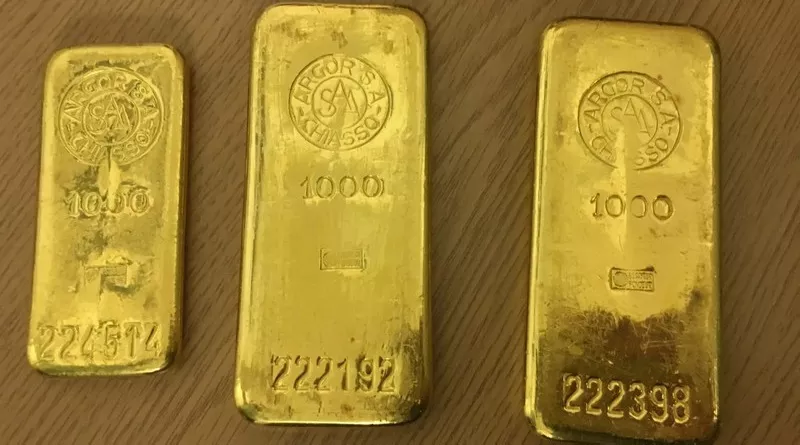Geopolitical events have a profound impact on global financial markets, and spot gold, as a traditional safe-haven asset, is particularly sensitive to these developments. Investors often turn to gold as a store of value during times of geopolitical uncertainty, considering it a hedge against market volatility. Understanding the relationship between geopolitical events and spot gold prices is crucial for investors looking to navigate the complexities of the precious metal market.
I. Gold as a Safe-Haven Asset in Geopolitical Turmoil
Historical Role: Gold has long been regarded as a safe-haven asset, a designation that dates back centuries. During times of geopolitical turmoil, economic crises, or war, investors historically sought the safety and stability that gold provides.
Preservation of Value: Geopolitical events can contribute to increased market uncertainty, which may erode the value of traditional currencies. Gold’s intrinsic value and limited supply make it an attractive option for investors seeking to preserve their wealth in the face of uncertainty.
Inverse Relationship with Risk Assets: Gold often exhibits an inverse relationship with riskier assets like stocks. When geopolitical tensions rise, investors may shift their capital from riskier assets to gold, driving up demand and prices for the precious metal.
II. Impact of Geopolitical Events on Spot Gold Prices
Immediate Price Spikes: Sudden and unexpected geopolitical events can lead to immediate spikes in spot gold prices. Investors seeking a safe-haven often rush to buy gold as a protective measure, causing a rapid increase in demand.
Volatility During Unsettled Periods: Geopolitical events can introduce heightened volatility in financial markets. This increased volatility may result in more significant price swings for spot gold as traders react to unfolding developments.
Flight to Safety: The term “flight to safety” is often used to describe the phenomenon where investors move their capital to assets perceived as safer during times of uncertainty. Gold, with its historical reputation, becomes a primary destination in such scenarios.
III. Geopolitical Factors Influencing Spot Gold Prices
Global Conflicts: Wars, geopolitical tensions, and conflicts can have a profound impact on gold prices. The perceived stability of gold during turbulent times attracts investors seeking a safe haven.
Trade Disputes: Trade tensions and disputes between major economies can contribute to market uncertainty. The resulting economic concerns may drive investors to gold as a store of value.
Political Instability: Political instability, including changes in government, policy uncertainty, or civil unrest, can create a risk-off environment where investors turn to safe-haven assets like gold.
Economic Sanctions: The imposition of economic sanctions on countries can disrupt financial markets and contribute to global uncertainty. In such situations, gold may see increased demand as a safe-haven asset.
IV. Considerations for Investors During Geopolitical Events
Stay Informed: Geopolitical events are dynamic, and staying informed about global developments is crucial. Regularly monitoring news and updates can help investors make informed decisions.
Diversification: Diversifying an investment portfolio is a common strategy to mitigate risk. Including gold in a diversified portfolio can help offset potential losses in other assets during geopolitical uncertainties.
Monitor Central Bank Policies: Changes in monetary policies driven by geopolitical events, such as interest rate adjustments or quantitative easing, can impact gold prices. Keeping an eye on central bank decisions is essential for gold investors.
V. FAQs on Geopolitical Events and Spot Gold Prices
Q1: Can geopolitical events lead to a sustained increase in gold prices?
A1: Yes, depending on the nature and severity of the geopolitical events, gold prices can experience a sustained increase as long as uncertainty persists, and the demand for safe-haven assets remains high.
Q2: How quickly do spot gold prices react to geopolitical events?
A2: Spot gold prices can react swiftly to unexpected geopolitical events, with immediate price spikes occurring as investors seek safety in gold. The speed of the reaction depends on the severity and unpredictability of the event.
Q3: Are there specific geopolitical events that consistently impact gold prices?
A3: While there is no fixed rule, events such as armed conflicts, major political crises, and economic sanctions tend to have a significant impact on gold prices due to the increased demand for safe-haven assets.
Q4: How can investors hedge against geopolitical risks using spot gold?
A4: Investors can hedge against geopolitical risks by allocating a portion of their portfolio to spot gold. This provides a hedge against market volatility and currency devaluation during times of geopolitical uncertainty.
Q5: Does the impact of geopolitical events on gold prices vary by region?
A5: Yes, the impact can vary. While gold is a global asset, geopolitical events that directly affect major gold-producing or consuming regions may have a more pronounced effect on prices in those specific areas.
Q6: Are there risks associated with investing in gold during geopolitical events?
A6: While gold is considered a safe-haven asset, there are risks, including price volatility and potential reversals in market sentiment. It’s essential for investors to carefully assess their risk tolerance and investment objectives before allocating funds to gold during geopolitical events.

